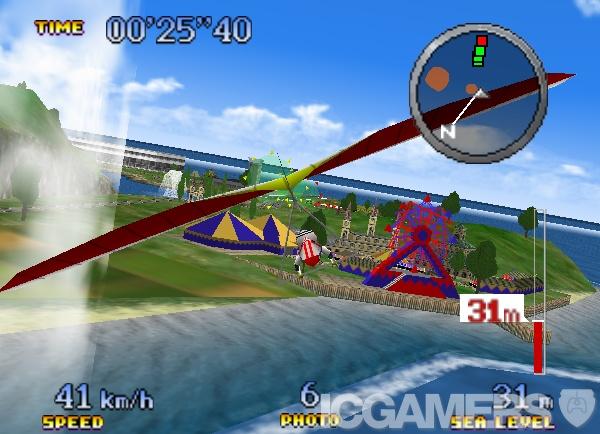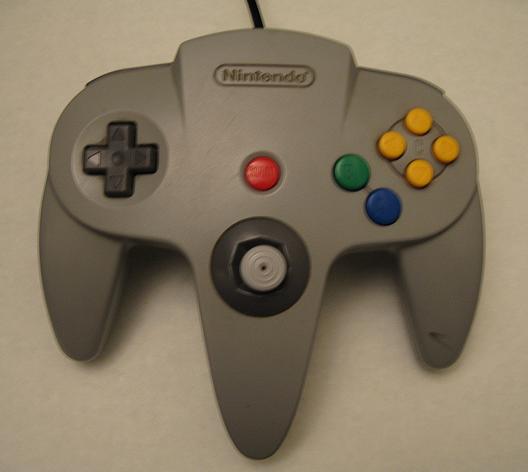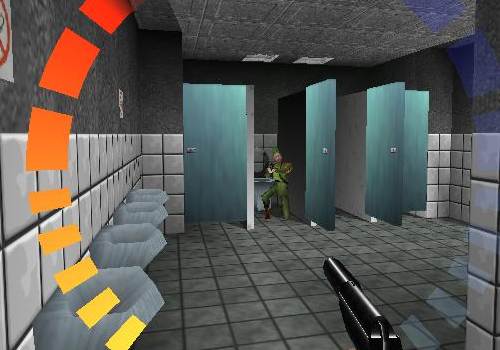Last updated on July 4, 2016
Man, why do people think every judgement of the past somehow finds its foundation in nostalgia?
It’s difficult for people to understand why they don’t like a particular game type that doesn’t fit into their preconceived notions. I know that I can be just as guilty of this in my reviewing and writing. I want my games to be games first and experiences second. I find when the experience usurps the game’s rules, then we arrive at a host of problems that extract my consciousness out of the experience in question. Still, that doesn’t mean I don’t understand why something was good when it came out in the past.
To wit: the idea that some games “have aged badly” and “aren’t playable” strikes me as a kind of prejudice. Things that are old are, by default, bad. I suppose this has some relation to the concept of human progressivism and evolution being key to our current cultural zeitgeist, but in terms of technology it’s accepted at large. In video games, some games with innovative concepts or revolutionary design aren’t lauded as good games – merely influential.
So: do some games transcend their historical context, remaining eminently playable even today?
Absolutely. Case in point: the N64 and its pleothera of first-party Nintendo games. Are any one of them bad? I was the kid that opted for an N64 in transition from the SNES. I knew what Nintendo could do, and they provided. Even with a significantly small game selection at launch, the system continued to wow me. Who hadn’t played Super Mario 64 and felt that burst of joy in solving a particularly tricky jumping puzzle? Remember that you could die in the game – actual tension! Pilotwings 64 was a completely new experience that demanded some very precise flight controls. It gave variety through its various modes, but also piled on a heaping helping of replay value to unlock some of the weirder stuff (jumping boots!)

Wave Race 64 was an unbelievable accomplishment, combining arcade-style racing controls with realistic weather conditions on jetskis. My father became so proficient at the game that he blasted everyone else out of the water. Staying between buoys (and the way they shift depending on course difficulty, weather, etc) made every course interesting and challenging regardless. Of course, you only had four characters, but they could be edited to the minutest detail for a more precise control fitting to your style; I haven’t seen a racing game with that option since. Stunt mode, additionally, really showed the depth of a seemingly useless trick system by giving its own mode, Landing a 1080 flip was never so sweet, Tony Hawk be darned.
I even LIKE Shadows of the Empire. That was the first Star Wars game I enjoyed in any capacity. Sure, much of the level design revolved around shooting stormtroopers (and platforming, oddly enough), but the sequences with any ship control really held their own. That was the first time Star Wars space battles were rendered convincingly in full 3D – they aren’t much now, but they certainly were then. I had endless heaps of fun playing and replaying the Battle of Hoth, just to use the tow cables and knock down some AT-ATs. And also to hear my friend yell “chowow!” for no reason when charging into one of those massive behemoths.
And that was just the first few months of the system’s lifespan. Then you had Mario Kart 64, the first iteration with four players and some great track design. Star Fox 64 and the Rumble Pak (SO INNOVATIVE, kidding) which made something simple incredibly intricate with multiple paths? How about Goldeneye, the first actually great exclusive console FPS with its excellent single-player missions (no regenerating health, no saves points, multiple objectives and exploration = greatness) and almost unparalleled multiplayer modes? Even now, I find very few games that can juggle so many diverse elements and make them cohesive (Assassin’s Creed, I’m looking at you).
This was only 1997! Where have games gone since then? Well, in terms of FPS games, to Call of Duty and Halo – really, slight changes to the console FPS model at best. Controls improved with the dual analog, but certainly not in variety and multiple paths through the same level. Mario Kart still reigns supreme, granted, but the 64 model was the first revision that determined the path for the rest of the series. Star Fox? There hasn’t been a great game in the series since then, unfortunately. Star Wars games haven’t lived up to their potential (save for a BioWare RPG here and there; Rogue Squadron was N64, too!), merely replicating what happened on the N64 versions.
If our current conversation held sway, then apparently ALL of these games owe their success to a particular point and period in time. Ever play their remakes? The Goldeneye remake tries to replicate the same model, and doesn’t quite succeed – Rare should have made it, honestly. It’s now just a generic “modernized” shooter with “arcade” style controls. Every Mario game since, every Zelda game since merely iterates on the same formula established best here. Even as a critic of Ocarina of Time, I still see its influence across the board and its quality. I haven’t played a Pilotwings game in a long time, and Wave Race: Blue Storm just doesn’t have the same magic or accuracy of control as the original.
Nostalgia’s underrated, I think. Many of these games stand up today, but the “controls” hold many back from experiencing them. You need to take them at face value and see their worth without this unjust notion that old equals bad.
Now, I have some speculation as to why we’ve entered this mode of thought. In childhood, it’s assumed that we know little about the world – however, that intense joy of discovery and wonder becomes an essential part of our development. We find new things, we love them for a time, then we move on. As we grow older, we start to lose that sense of discovery, but it’s not because they’re aren’t things left to learn, find out, and see. Rather, we’ve limited our viewpoint and our world, an overbearing cynicism that makes what we know great, and everything else becomes horrible and ugly. That’s just plain wrong. There’s plenty of things out there – the Internet’s nearly unlimited bastion of useless knowledge attests to this – if only we’d reach out and look. 1 Timothy 4 says this:
But the Spirit explicitly says that in later times some will fall away from the faith, paying attention to deceitful spirits and doctrines of demons, 2 by means of the hypocrisy of liars seared in their own conscience as with a branding iron, 3 men who forbid marriage and advocate abstaining from foods which God has created to be gratefully shared in by those who believe and know the truth. 4 For everything created by God is good, and nothing is to be rejected if it isreceived with gratitude; 5 for it is sanctified by means of the word of God and prayer.
The same problem happened with the early Church – many disciples began to restrict their activity, based on the conception that becoming said disciple meant abstaining from food sacrificed to idols. The intentions, of course, were good, but it promoted an asceticism that didn’t represent Christian practice. Love does not condemn the practice through making a statement in a social situation. You know the type: the Christian who, in a room full of people eating at a fast food restaurant, must have everyone at the table hold hands and say grace OUT LOUD to everyone at the table.
I don’t doubt the sincerity of said gestures, but they don’t help anyone out; in fact, by separating yourself in this way, you’re not promoting holiness; you’re only showing intolerance. Finding the good in everything becomes the motive; specific practices isn’t the destination, but the intention behind that practice. That’s why Christianity isn’t merely a set of guidelines, rules, and regulations; it’s a mind-blowing, tranformative way of life that should change how you perceive reality.
Nostalgia, in that sense, rekindles my desire to replay said games because they were good, and remain so. Now if you excuse me, I need to go play some Goldeneye and see if my skills hold up with an N64 controller.


